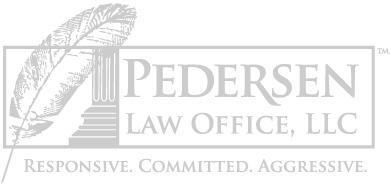What is a Revocable Trust, and Do I Need One?
Mar 12, 2014
What is a Revocable Trust and Do I Need One?

When you die the first person to receive part of your estate is the attorney hired for the probate process. The state of Wisconsin requires a person’s estate to go through the court’s probate system if the gross amount of assets at the time of death is $50,000.00 or more. In Wisconsin a probate case can cost thousands of dollars. Is this where you want your hard earned money to go? Of course not! Luckily, there are ways to plan ahead and avoid those unnecessary costs with a trust.
Definition
Legally, a revocable trust is a formal document where legal title to property is transferred to a separate entity to avoid probate at the time of the creator’s death. Here is an easier way to understand it. A revocable trust is like a safe deposit box. What items are in the box and how they are used are up to you and you have the only key to the safe deposit box. Throughout your lifetime, you can add and remove items from the box at will. At the time of your death or incapacitation, the key to the box is passed to whoever you have designated. When they open the box they will find a set of rules that they have to follow concerning the distribution of the assets in the box. Since the safe deposit box owned all of your property when you died, your family can avoid the probate process because you owned nothing at the time of your death.
Trust vs. Will
Even if you have a Will, Wisconsin still requires the court to be involved with your estate if you have $50,000 or more at the time of your death. The court will use your will to determine how to distribute your estate, but your heirs are still required to jump through the hoops of the court system. This can be time consuming, expensive and require the help of an attorney. Also, depending on the size of the estate, there may be death tax implications.
As stated previously, if you have successfully created a revocable trust and put your assets in it prior to your death, you died with less than $50,000 in assets. Therefore, your heirs can avoid the probate process. Instead your family has to simply follow the instructions you left them in the trust, which avoids needing the assistance of an attorney. This can benefit the family in several different ways.
Benefits
Avoid the probate system. As stated above, the probate system is expensive and time consuming and only necessary if you die with $50,000 or more. If you have all your property in a trust, you will die with zero assets.
Avoid death taxes. With the correct planning in a trust, a family’s assets can be allocated between the members in an effort to make sure everyone’s assets at the time of death are below the taxable amount.
Avoid estate assets being public record. A probate is a court proceeding and all court proceedings are require to be public record. Therefore, anyone can have access to your probate records. If you die with a trust, there is no probate case and no public record.
Uninterrupted management of financial/business assets. If you own a business and you pass away or become incapacitated, your family will have to petition the court to have someone appointed to take care of your business affairs. This takes time and the business is not able to operate until completed. If you have a trust, the person you appointed takes control immediately.
Avoid blended family problems. Having a trust will ensure the assets of the family will be split equally between husband’s children and wife’s children, no matter who dies last.
Avoid probating in two states. If your main residence is in Wisconsin and you have real estate in another state, your family would have to probate in Wisconsin and have a separate probate case in the other state to handle the second real estate property.
Provide the most for your children. If a person is entitled to government assistance, either due to having special needs or being a minor, their right to assistance could be jeopardized if they receive an inheritance. If their inheritance is slowly received through a trust, they are still eligible for government assistance and the inheritance is simply extra income.
Prevent beneficiaries from losing their inheritance foolishly. If desired, a trust allows you to have “control from the grave”. This is the idea that you can control how much, when and for what reason your beneficiaries receive their inheritance. This is helpful if you have a beneficiary that you feel is likely to wastefully spend your money.
Who Needs A Trust?
With all those benefits, what are the disadvantages of a trust? First, having a trust cost more money to set up than a will. However, the amount of money you spend to create the trust is going to be less than the amount of money spent probating your estate. Secondly, when you have a trust, you have to make sure that all assets acquired or sold are done through the trust. This is an easy process but still a requirement.
If any of the benefits listed above would be helpful to you or your family, you should seriously consult with an attorney about creating a trust. Here at Pedersen Law Office we have free consultations in all our areas of practice, including estate planning. We can meet with you in our Appleton area office or our Green Bay office. Take advantage of our free overview of your financial situation to see if a trust is right for you!


